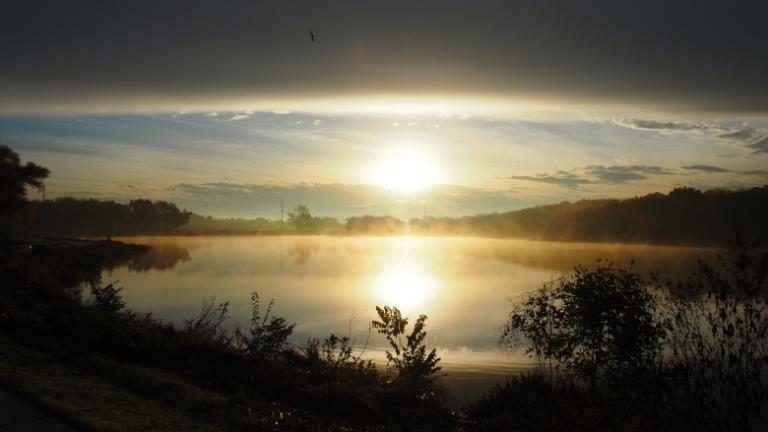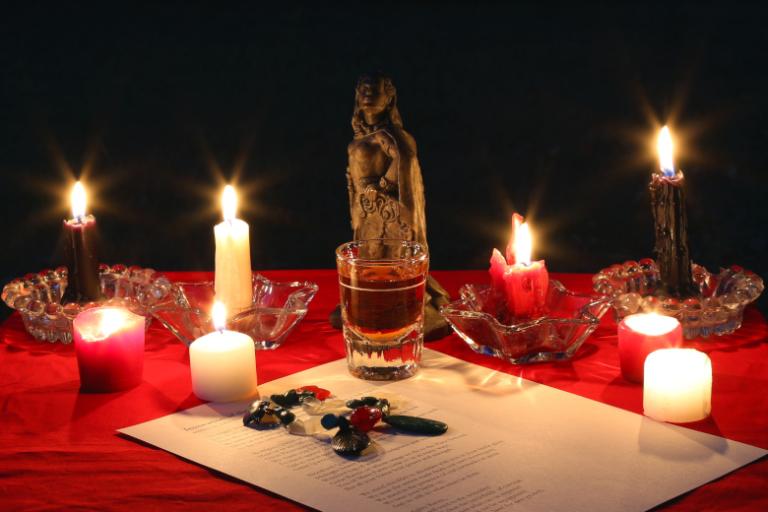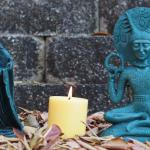It was not so long ago that the Pagan community was bragging about being the fastest growing religion in the United States. We talked about public temples and paid clergy, and we put some work into building theological and philosophical foundations for what our Pagan and polytheist religions would become.
And now? Some of that work is still going on. But even where it is, it’s being done in an environment where organized religion as a whole is shrinking at rates that would have been unimaginable even ten years ago.
My expectation (though it was more of a hope than either a data-driven projection or a divinatory prediction) was that as people left Christianity, many of them would make their way into one form of Paganism or another. I expected people to congregate in three main areas: polytheism, witchcraft, and non-theistic Nature worship.
That hasn’t happened.
Instead, the vast majority of people who are leaving Christianity are becoming “none of the above.” They maintain a few vague, high-level religious beliefs. They still celebrate Christmas and maybe Easter. Spirituality – whatever they think that means – is still important to them. But they no longer identify as Christian and – here’s the big point – they rare attend the services of any religion. They’re not looking for a temple or a shrine or a grove to replace the church they left.
The Pagan movement is not dead – far from it. We are still growing – people are still becoming Pagan in the same ways many of us became Pagan. But the “Pagan wave” we hoped for isn’t coming.
So now what?
I’m not interested in trying to read the tea leaves – I have no skills with tasseomancy. But as an old saying of indeterminate origin says, the best way to predict the future is to create it.
Instead of trying to figure out what will happen, I want to talk about what we want to happen.
What do we want our religious and spiritual future to be?
We will never be united
I occasionally see people say something like “if we’d just put our differences aside and come together for the common good…” It’s a nice thought.
It’s not happening.
The history of the modern Pagan movement from the Golden Dawn to Gardner and Sanders to P-exit has been one of division and schism. Some splits have been over theological or metaphysical differences, while many more have been personality conflicts between leaders whose charisma was exceeded only by their egos.
This is not a Pagan problem. This is a human problem. We will work together when we have to, or when we can see a clear benefit, but the idea of “just come together” is a fantasy that isn’t going to happen.
Beyond that, many of our differences exist for good reasons. Polytheists, pantheists, and non-theists have very different ways of understanding the world and relating to it. We may be able to work together to do Pagan Pride Day once a year, but we’re never going to worship together at every holy day. We don’t even recognize the same holy days.
Our plans for the future cannot require that people do what we know they won’t.
It can’t be something other people build
The mainstream religions have a way of seeping into alternative religions. Not just their language and stories and doctrines, but also their expectations of what a religion should look like. And the mainstream religions (both Protestant and Catholic) have created the expectation that religious organizations and events are something other people do – and that other people pay for.
Services? Planned and led by professional ministers. Facilities? Built by previous generations. Community outreach, whether for social justice or for evangelism? Done by the very devout, or by paid staff. And all this is paid for by the contributions of about 20% of the members.
If you want a Catholic church or a Baptist church, all you have to do is show up and take a seat. At some point you’ll likely be asked to contribute money or time or both, but the church will go on whether you do or don’t.
Until it doesn’t – many churches have never come back from the pandemic drop-off and some are in danger of closing.
Pagans don’t have that legacy. For the most part, we haven’t built the facilities and organizations the mainstream religions have. Plus if a typical core group is 20% of membership and your membership is 100, then your core is 20 people. If your membership is 10, your core is 2 – and that’s a very different situation.
Whatever you want for the future has to be something you’re willing to help create and support.
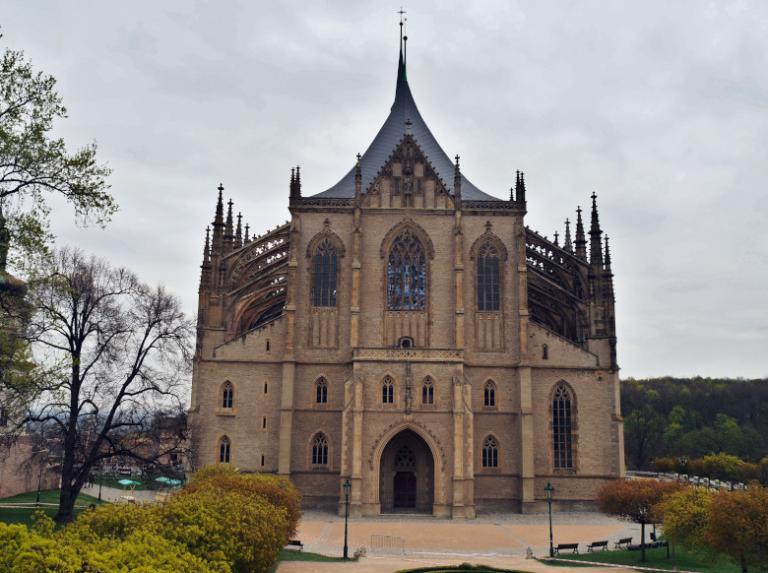
Paganism on three levels: one, two, or all three?
I love large group rituals. I love leading them and I love participating in them (on the rare occasions when I can be an ordinary participant). They’re a ton of work to plan, facilitate, and present, but when they’re done right, they help people experience the Gods and magic and participate in community in a way that can’t be done alone.
My deepest and most meaningful religious experiences have happened in small groups – three or five or nine people in someone’s back yard, working spells and pouring offerings and opening ourselves to the presence of the Gods and spirits.
The core of my Paganism is my daily and weekly spiritual practice: meditation, prayers, and offerings. If I just practiced my religion on the high days, or on the full and dark moons, or even both, it would be a weak religion. This is something I do every day, and I recommend everyone find something they do every day.
What we want has to be balanced with what is possible. Support for large public rituals – and especially for the organizations required to facilitate them – was never particularly high in the wider Pagan community. It’s been even less since the pandemic. I don’t think we can build a Paganism around large public rituals. And that saddens me, because I love these organizations and rituals so much.
I think we can build a Paganism around small groups and individual practice.
The Gods are still here
Whether the Old Gods really went away with the coming of Christianity is a matter of debate. That They are here now is not.
And They continue to call individuals.
I saw something on social media a few weeks ago where someone was complaining that “Gods don’t call people – people approach Gods.” At the core of their argument was the fear that people are trying to make themselves feel special (or worse, “chosen”) and imagining messages from deities that aren’t really there.
While I understand that concern, the vast majority of people I’ve encountered who are called – in any sense of the term – have responded with humility and reverence, and with a desire to learn and grow in relationship and in service.
A few have been called to found priesthoods and temples and shrines – that those orders are still small does not mean they have failed. Many more are simply honoring their Gods and serving Them in ways that don’t generate headlines.
Is that enough? It sounds awfully small, but I can assure you that if the Morrigan wanted more, people would know it. She’s not known for being timid.
Not all Pagans are polytheists. But for those of us who are, maintaining and strengthening our relationships with our Gods is a foundation we can build on.
We’re in a golden age of magic and witchcraft
We’re living in a very magical time. More people are practicing more magic today than ever before. Information and instruction have never been easier to get – or less risky. The currents of magic are stronger than they’ve been in centuries and they’re only getting stronger.
Magic is something that is often done alone. Think of the witch in her cottage deep in the forest or the alchemist in his laboratory. Or less mythically, our own personal magic with herbs and stones, candles and sigils, visualizations and prayers.
Contrary to what many people seem to think, the key to skill with magic is not finding some archaic book of long-forgotten secrets. The key is actually practicing magic, building skills through repetition and building wisdom through trial and error.
And also, experimenting with new magical systems and techniques, then sharing your findings with other practitioners so they can learn from your work – and then expand on it themselves.
This is an area where our reluctance to embrace institutions isn’t a serious obstacle for growing our traditions. We simply have to do the work, and then do enough networking to share what we discover and learn.
Online friends are real friends
I’m a big advocate for local friends and local communities. If you need someone to take you to the doctor or to take care of your cat while you’re on vacation, you need someone physically close to you. If you want to have a Maypole at Beltane, you need several someones close to you.
But what if you live in a remote area and there aren’t a Maypole’s worth of Pagans within driving distance? Or if there are, but most of them are so exhausted from trying to live through “all this” that coming together even for one of our most popular sabbats is just too much for them?
Our online relationships are real relationships. If it wasn’t for the internet I wouldn’t know people like Jason Mankey and Morgan Daimler. At least I’ve met them in person – I’m still waiting to meet Cat Heath and Lonnie Scott and a bunch more people.
There are some online-only Pagan groups that do the kind of things in-person groups do. That’s one way of doing it. My own model is more about relationships and networking – supporting my friends in their work, and calling on them when I have a need in their areas of expertise.
Our Paganism doesn’t have to look like a church. It doesn’t have to look like a virtual church either.
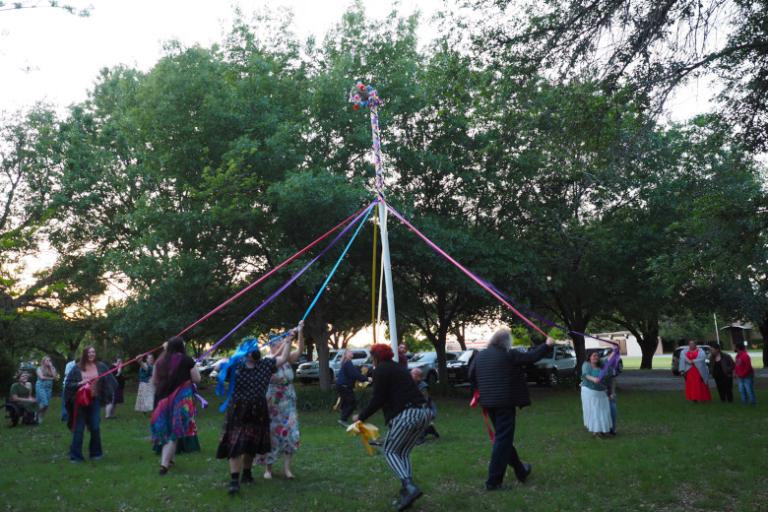
What do you want to do?
I frequently struggle to focus on this question in my personal life.
I often worry about what I want to have, forgetting the truth that we live in a society saturated with advertising and that things don’t bring happiness. I worry about what I want to be, forgetting that I am what I am and that changing that requires action. Focusing on what I want to do usually takes care of the other questions – and it’s something I can control.
When it comes to Paganism, polytheism, witchcraft – however you describe your religious and spiritual practice – what do you want to do?
What are you willing to do?
The future of Paganism is not what I thought it would be – what I wanted it to be – ten years ago. We’re not going to see a re-emergence of the temple religions of ancient Greece and Rome. We’re not going to see modern polytheist religions structured like the Catholic Church – or like the Unitarian Universalist Association. That’s probably for the best anyway.
I’m not advocating for a particular model or structure or plan. I’m not saying we should or shouldn’t take this or that approach (although I have noted a couple of approaches we know won’t work).
Contemporary Paganism is like ancient Paganism in that both are organic religions. They grew / are growing from the bottom up. What we read and see in the lore we have took centuries to reach the state they were in when they were wiped out by Christianity.
We’re still in the early stages of modern Paganism.
The future of Paganism is very much undetermined. It will grow out of what we do. It will be what we make it.
What do you want to make it?


